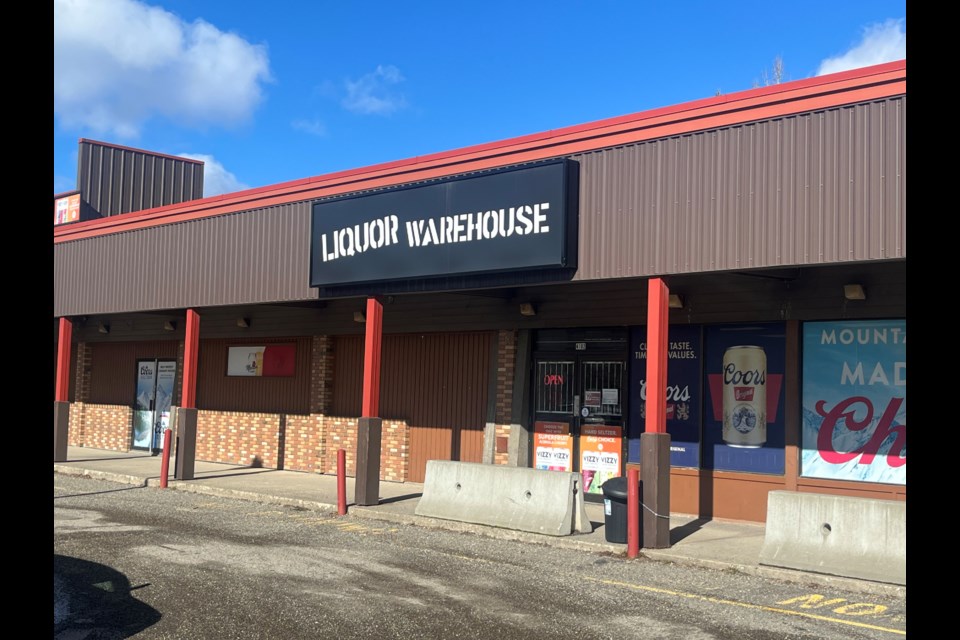The BC Liquor Distribution Branch (LDB) has decided to aggressively respond to U.S. tariffs as part of the broader provincial and federal government response.
Earlier this year, after the U.S. first announced, then put on hold, tariffs on Canadian goods, the LDB only removed liquor from red states that voted in favour of U.S. President Donald Trump.
Following a directive from the BC government, the LDB announced on March 10 that it would halt the importation of all U.S.-made liquor products.
In addition, it also announced that it would stop the retail sale of all U.S.-made liquor products and remove these items from store shelves immediately.
Premier David Eby recently addressed the decision to restrict the sale of U.S. products.
"Today, we are ordering the removal of all American beer, wine, spirits, and refreshment beverages from the shelves at BC liquor stores," Eby said. "The stores carry hundreds of types of U.S. alcohol, which the BC Liquor Distribution Branch will no longer be purchasing. We are taking this action in response to escalating threats from south of the border."
The premier followed up, stating that these bans are a response to a very real economic threat from the United States.
"Let there be no mistake about the intent behind tariffs: President Trump wants to hurt Canada economically so he can annex Canada politically," Eby said. "As hard as it is to believe, our longtime friend and ally is behaving like a foe. Trump wants to force us into becoming the 51st state. That will never happen. We are proud Canadians. We will always be the true north, strong and free."
Canada is also fighting back against these recent tariffs by removing trade barriers between provinces.
In a recent announcement, Canadian first ministers spoke about plans to remove these barriers and allow direct-to-consumer alcohol sales amid economic threats from U.S. tariffs.
This ban, however, will only affect liquor products that are manufactured in the U.S. and imported into Canada. U.S. brands produced in Canada, like Budweiser, will not be removed from shelves.
In a statement, the LDB noted that the mark-up collected from liquor sales is an essential source of government revenue, contributing just over $1 billion to the Government of British Columbia.
The LDB controls the distribution, stocking, and promotion of all the products under its umbrella, which means all breweries, distilleries, and wineries must operate under distinct sales agreements.
This suggests that more promotion of BC and Canadian brands will be seen in the near future.
Even independent liquor stores not under the LDB’s umbrella typically acquire their stock from it, meaning American products will likely disappear from these shelves once current stock runs out.
“Right now, we are still able to order products made in the U.S. until all the inventory currently sitting in the warehouses is gone,” said Alana Fletcher, manager of Liquor Warehouse in Prince George. "It's already been imported into Canada. I'm not sure yet if we’re going to be ordering anything from there at this point. Pretty much, we just have the stuff on our shelves. We’re not going to pull it because we need to be paid for that inventory, and we wouldn’t be able to get our money back or return it.”
Fletcher told The Citizen that when American products run out, the focus will shift to promoting Canadian-made liquor through in-store tastings and social media.
She added that the most impacted American brands will likely be bourbon and wine, though they represent only a small percentage of the products available at the Liquor Warehouse.
Overall, Fletcher is not concerned about the recent removal of U.S.-based products.
“We're definitely affected by this, but I don’t think it will negatively affect us for long,” Fletcher said. “I think Canada as a whole is fighting against this and really coming together to buy Canadian and support Canadian as well as other countries, like those in Europe. So I think we’ll be all right.”
Liquor on the Hart store manager Sharlene Sellars said smaller stores like hers often can’t afford to sell only Canadian liquor and are unable to pull American products off the shelves due to storage constraints.
“I don’t have the storage space,” Sellars said. “If I were to take all of the American product out, I would have nowhere to put it. So I think lots of the private stores will just sell what they can. I’m not doing anything differently. I can’t afford to … Bacardi’s a really big seller, but I’m not going to pull it off the shelf just because it’s American. If the price goes up and people want it, then obviously I’m going to sell it.”
The manager of BX Pub Cold Beer and Wine Store, Cindy Lowley, has not yet felt the impacts of the ban but has seen massive increases in the purchase of BC products.
“It’s really not going to impact us that much,” Lowley said. “I’m sure customers will complain about it not being on the shelf once we can’t get it, so we’ll just have to put more BC wines in that spot it takes up. But in the last 10 days, we’ve sold more BC wine than we’ve ever sold. We’ve got people coming in and seeking it out.”



.png;w=120;h=80;mode=crop)